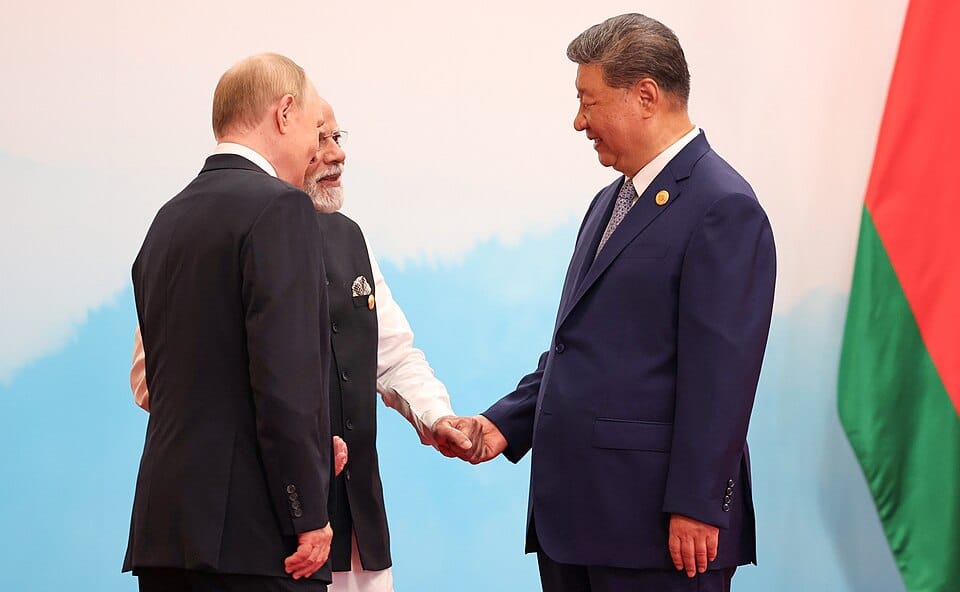The World Responds To American Tariffs And Sanctions

Very often, our government leaders present complex issues in the simplest possible terms. That has certainly been the case with American Tariffs. The Trump Administration tells us that tariffs are a one-time transaction: the United States imposes an import tax on our trade partners, collects the revenue, and that's that. Simple, straightforward, and direct.
Since President Trump announced the imposition of Global Trade Tariffs on April 2, the Administration has been quick to point out the additional revenue coming into the US Treasury. It appears to be a highly positive event, where Tariffs translate into added revenue for the Federal Government, something that we desperately need.
However, it's only now that we're beginning to feel the added pinch of this new import tax. Because it takes time for imports to reach American ports, be transported to local stores and shops, it has taken this long for us to see those new, tariff-laden goods. Labor Day Weekend was the beginning of what we anticipate will be a sustained elevation in prices due to tariffs.
Regrettably, we're only at the first chapter of what will likely be a very long story, one that may have a profound financial influence on us all.
This same Labor Day weekend, when many of us here in the US were taking advantage of those "back-to-school" sales, halfway around the world, leaders were meeting and shaping a new economic order.
The event was the Shanghai Cooperation Summit. At that meeting were the leaders of the world's two most populous countries, Xi Jinping of China, and Narendra Modi of India, in addition to Vladimir Putin of Russia. Joining them were leaders from Saudi Arabia, Iran, Turkiye, and Brazil.
A combination that is often referred to as the "Global South." Collectively, while these countries do not have as substantial an economy as the Global West, headed by the United States, they nevertheless have a larger population and greater natural resources.
For the first time in their 25-year history, they have a common foe: the United States and its newly implemented tariffs. Although he wasn't mentioned by name, President Donald Trump cast a long shadow over these proceedings. China's Xi was obviously referring to Trump's new trade restrictions when he said:
"We must continue to take a clear stand against hegemonism and power politics, and practise true multilateralism."
https://www.aljazeera.com/news/2025/9/2/china-russia-pledge-new-global-order-at-shanghai-cooperation-summit
This call for multilateralism became the byword for the conference – nations coming together to forge a new economic order, one that likely will exclude America and the West.
And this wasn't idle chatter; China's Xi and Russia's Putin signed no fewer than 22 economic and strategic agreements that revolutionize entirely the relationship between these two countries. Among these agreements were a joint venture to explore the Moon, provide China with additional agricultural products, and three agreements to supply China with Russian natural gas. These later agreements will effectively divert the gas Russia formerly sold to Europe and reroute it to China. It effectively cuts the European Union off from cheap Russian energy.
China has been especially active in replacing the United States' economic influence around the world. Its ambitious "Belt and Road" initiative will provide transportation infrastructure to 150 countries globally. Projects have already begun in Asia, Africa, and South America. Brazil, especially, has already benefited from a proposed rail system that will transport goods from the Atlantic region to the Pacific – cutting days off of shipping time to Chinese ports.
While still years from completion, this project demonstrated China's willingness to cooperate with Brazil. So, when President Trump announced tariffs aimed at Brazil's agricultural products, it took little time for Brazil to turn to its other market, China. The result has been a precipitous drop in US ag exports to China, and utter devastation for American farmers.
None of this would come as a surprise to economist Charles P. Kindleberger. Born in 1910, Professor Kindleberger was a young man when the Great Depression descended upon America. He would go on to write what is perhaps the most authoritative book on the economic and financial causes of that calamity, The World In Depression, 1929 – 1939. In it, Kindleberger points out that the Smoot-Hawley Tariff of 1929 was only the beginning of a process, precipitated by the introduction of American Tariffs, the process would include the counter-reaction by countries around the globe.
For years, the United States has used trade restrictions as a primary strategy to curtail unwanted behavior in other countries. In addition to tariffs, which make overseas products more expensive, we have also imposed outright "Sanctions," which most often prohibit trade or commercial interaction entirely. Many of these sanctions have been imposed on the leaders attending the Shanghai Cooperation Summit. For 35 years, we have sanctioned the Bank of Russia and Vladimir Putin personally for actions by Russian oligarchs, as well as sanctioning China for both their actions in Hong Kong and against racial minorities.
In short, we've made it clear that America stands on the other side of a global commercial divide. President Trump has made that divide virtually indivisible. He apparently believes that tariffs are just another transaction – a premium for the privileged of selling offshore goods to the American consumer.
Unfortunately for President Trump and for America, there's much more to this Tariff story. Trump may have written a preface, but the rest of this Tariff story is yet to be written. And we will not be its author.
This weekend, from faraway Shanghai, came the news that the rest of the globe is finding a "workaround" to the American Economic Hegemony.
Follow me here on ValueSide for more articles like this.